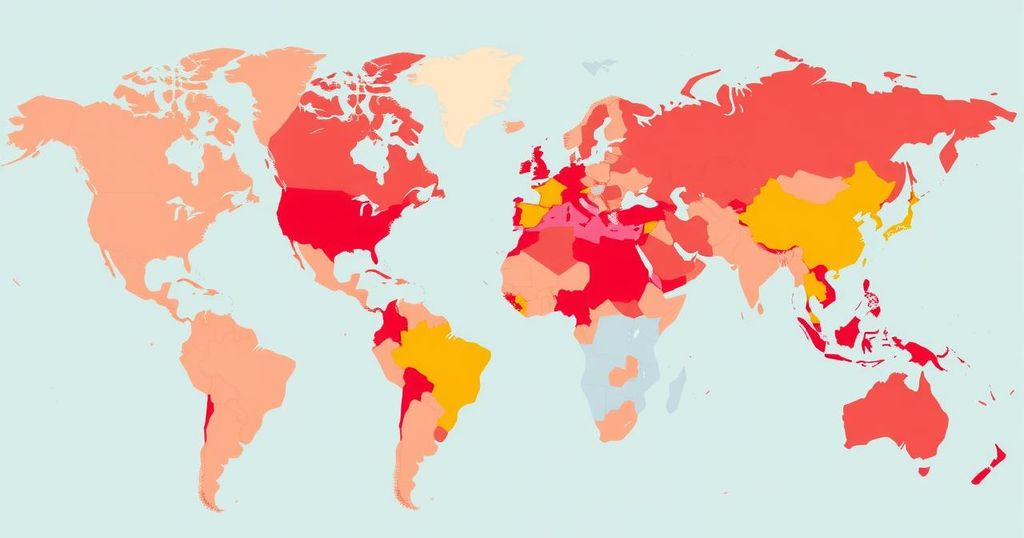The Trump administration is considering new travel restrictions affecting countries like Afghanistan and Pakistan. This move follows an Executive Order mandating a review of security processes. Advocacy groups are concerned about the implications for refugees and the adequacy of existing vetting measures. An official announcement regarding these restrictions is forthcoming.
The Trump administration is preparing to introduce new entry restrictions affecting travel from several countries, including Afghanistan, Pakistan, Iran, Libya, Somalia, Sudan, Syria, Yemen, Chad, North Korea, and Venezuela. This initiative follows an Executive Order issued on January 20, which mandated federal agencies to evaluate nations based on their security screenings and vetting processes. The administration is contemplating full or partial suspensions of admissions from the specified countries, with an official announcement anticipated shortly.
During the first term of his presidency, Donald Trump instituted a series of travel bans beginning in 2017, with significant focus on Muslim-majority nations. The initial ban faced extensive criticism, prompting opponents to label it a “Muslim Ban.” Despite various legal challenges, the U.S. Supreme Court validated the third iteration of the ban in 2018, asserting that it fell within the President’s scope of authority regarding national security matters.
While the definitive list of restricted nations has not been finalized, Afghanistan and Pakistan are reportedly under consideration for inclusion. Advocacy groups, such as the International Refugee Admissions Project (IRAP), have expressed concern that such measures may severely impact Afghan refugees, particularly those who hold Special Immigrant Visas (SIV) and are fleeing from Taliban oppression.
Pakistan’s status is also under review, primarily due to security issues and alleged inadequacies in its vetting procedures. Should Pakistan be subject to these restrictions, it could affect a significant number of Pakistani nationals aiming to secure visas for entry into the United States.
Civil rights organizations, including the American Civil Liberties Union (ACLU), have swiftly condemned the proposed travel ban. They contend that the new restrictions would exacerbate existing injustices, arguing that the State Department and the Department of Homeland Security (DHS) already implement some of the most stringent vetting processes in the world, rendering additional limitations unnecessary.
In light of the Executive Order, the State Department and DHS must complete their evaluations within 60 days to finalize which countries may face enforced travel restrictions. As this deadline approaches, an official announcement detailing these potential changes is expected shortly.
For continuous updates on this issue, individuals are encouraged to refer to the official websites of the U.S. Department of State and the Department of Homeland Security.
In summary, the Trump administration’s potential travel restrictions could significantly affect individuals from Afghanistan, Pakistan, and several other nations. Concerns have been raised by advocacy groups about the implications for refugees and the adequacy of current vetting procedures. Civil rights organizations oppose the proposed measures, emphasizing that they may exacerbate existing issues without addressing actual security concerns.
Original Source: www.travelandtourworld.com






